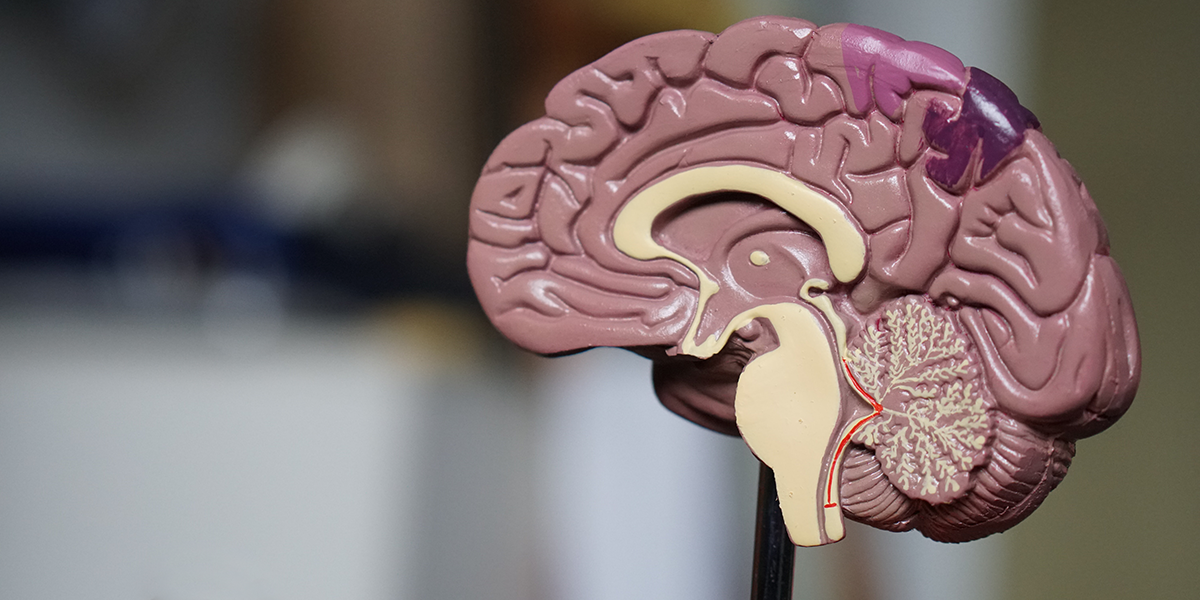When we talk about racism, we tend to focus on social and economic impacts like discrimination, violence and inequitable access to housing, healthcare, food and justice. These are all very real impacts of racism, in particular on people from Black, Indigenous and other communities of color.
But what about on a physical, biological level? Does racism have any impacts on the brain itself? We know that racism isn’t just “in your head,” but does it have any effects on the biology of what happens within our heads?
Short answer: a resounding “YES.”
Here are some of the many ways that experiencing racism can have physical, biological impacts on the brain.
Post-Traumatic Stress Disorder (PTSD) Symptoms
Experiencing racism in its many forms – from overt acts of hate and violence to microaggressions and discriminatory policies – can be incredibly stressful and traumatizing. Race-based traumatic stress can result in symptoms that resemble post-traumatic stress disorder (PTSD), a mental health condition in which a person relives traumatic events through flashbacks, panic attacks, nightmares and more.
These symptoms result from changes in the way the brain balances certain chemical messengers such as stress hormones, which affects how it interprets and responds to stressful events. Higher levels of cortisol, epinephrine and other stress hormones over time can wreak havoc on our bodies, including through high blood pressure, changes in metabolism and elevated risk for heart disease and stroke.
Brain Development
This can affect people of all ages, including children. According to the National Institute of Mental Health, the human brain continues to develop until a person is in their mid- to late-20s. Childhood events such as race-based trauma can significantly affect how the brain develops, with lasting marks being visible into adulthood.
“While children from all backgrounds deal with some harmful circumstances, children in underrepresented communities are often subject to more than their fair share,” according to Valentina Lagomarsino of the Graduate School of Arts and Sciences at Harvard University.
“Racism and discrimination have been shown to cause toxic amounts of stress and affect brain development,” Lagomarsino states. This can affect learning, concentration and emotional regulation. And, to reiterate, these are physical impacts on the brain, not merely circumstances that can be overcome by “trying harder.”
Brain Pathways
The impacts of racism go beyond higher levels of baseline stress: a recent study from Emory University looked at how racism can change the very composition of our brains.
The Emory team worked with Black women who had experienced racism to research the biological impacts. Using magnetic resonance imaging (MRI) scans, the team identified associations between:
– Dicrimination
– Brain white matter integrity and
– Incidence of medical disorders.
This indicates that racism and discrimination can change the amount of brain white matter. What is “brain white matter”? According to the Dana Foundation, it coordinates the transfer of information – essentially, how our brains help us think. And, “in the presence of damaged white matter, information processing occurs only in a slowed and inefficient manner.” This can affect not only cognition, but regulatory processes such as eating and substance use.
Memory & Cognition
Another revealing study was conducted by a team from Boston University starting 25 years ago when 59,000 Black women joined the Black Women’s Health Study at the Slone Epidemiology Center. The study followed the women’s health histories from their mid-30s until their mid-60s to look at effects over time.
“We found an association between experiencing racism—which is a stressor—and lower cognitive function,” said Lynn Rosenberg, senior epidemiologist at the Slone Epidemiology Center and a principal investigator of the study.
“There’s a lot of evidence that stressors are related to poorer cognitive function,” she explains. “The part of the brain called the hippocampus, which has a lot to do with
memory, is affected by stress hormones called cortisol. Chronic stress increases cortisol levels, which actually causes the tissue of the hippocampus to shrink over time.”
Ending Racism
What does this all mean? For one, the impacts discussed here barely scratch the surface. We invite you to continue learning about this important topic; the studies linked above are a good starting point.
Second, this is yet more evidence of the ways in which systemic racism is harmful to individuals and communities. This harm not only affects people’s emotions in the moment, but their brain chemistry and livelihoods in the long term.
WellPower is committed to ending racism by addressing systemic inequities, dismantling white supremacy and advocating for justice for people and communities. Learn more about some aspects of this work here.
How to Get Help
If you or someone you know is dealing with the effects of trauma, call Colorado Crisis Services at (844) 493-TALK (8255). You can also text TALK to 38255 or access 24/7 in-person crisis support at a walk-in center.
To access services at WellPower, you can give us a call at (303) 504-7900 or start a video call with a counselor on your phone or laptop using our new program, TherapyDirect.


